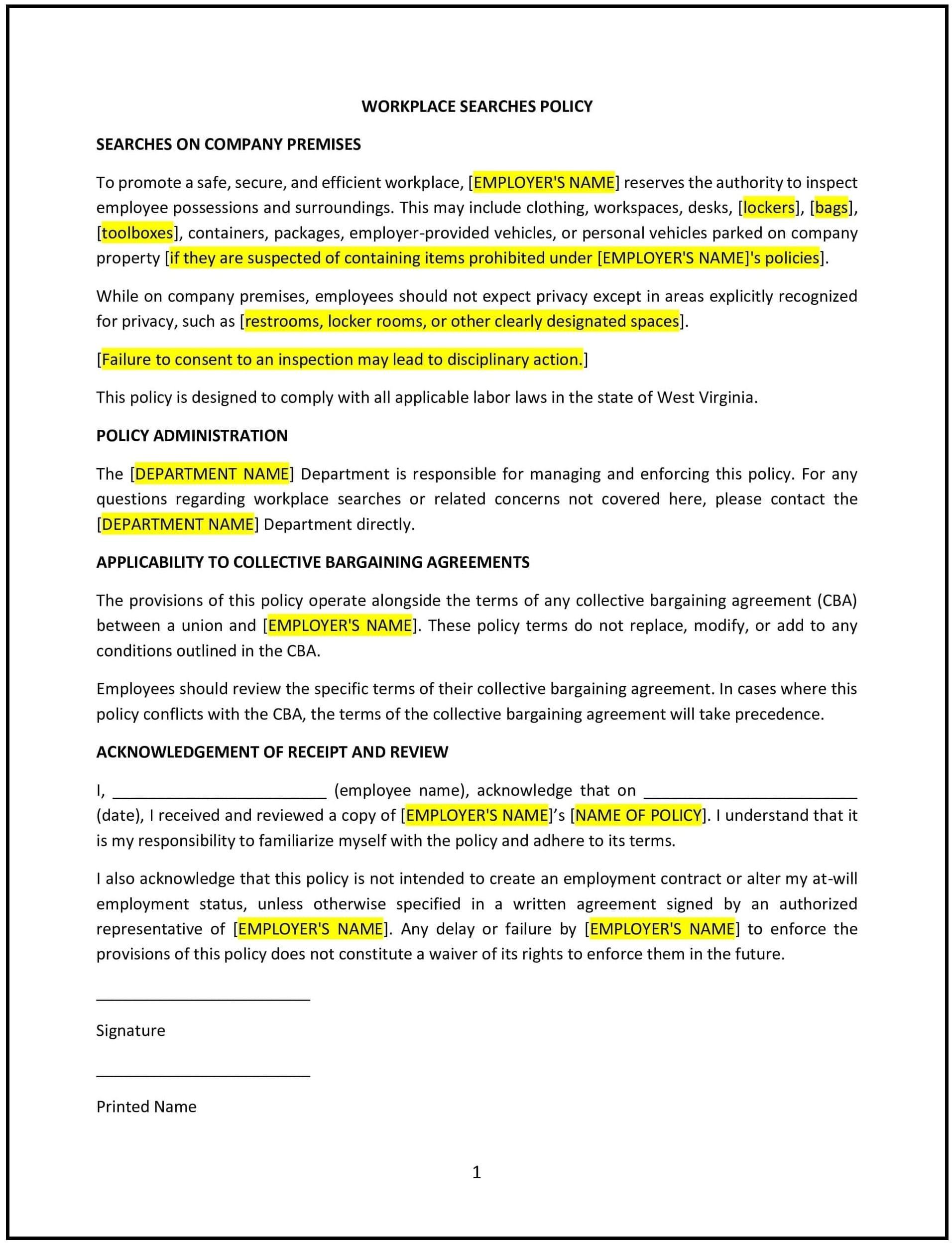Workplace searches policy (West Virginia): Free template
Got contracts to review? While you're here for policies, let Cobrief make contract review effortless—start your free review now.

Customize this template for free
Workplace searches policy (West Virginia)
In West Virginia, a workplace searches policy provides guidelines for conducting searches of company property or employee belongings to ensure a safe and secure work environment. This policy aims to balance the organization’s need to maintain security and operational integrity with employees’ rights to privacy. It outlines when and how searches may be conducted and the types of items or property subject to inspection.
The policy defines the scope of searches, employee responsibilities, and procedures for reporting and addressing security concerns.
How to use this workplace searches policy (West Virginia)
- Define the scope of searches: Specify the items or areas subject to search, such as desks, lockers, company vehicles, or electronic devices owned by the organization.
- Establish circumstances for searches: Outline the situations in which searches may occur, such as suspected theft, workplace policy violations, or safety concerns.
- Address employee notification: Clarify whether employees will be notified before a search and under what conditions a search may be conducted without prior notice.
- Emphasize employee rights: Reaffirm that searches will be conducted lawfully and respectfully, protecting employees’ dignity and complying with applicable laws.
- Support compliance: Align the policy with West Virginia labor laws and federal regulations to ensure fairness and legal adherence.
Benefits of using a workplace searches policy (West Virginia)
- Enhances security: Reduces risks of theft, policy violations, or workplace hazards through proactive search protocols.
- Supports compliance: Supports adherence to West Virginia laws and federal privacy regulations governing workplace searches.
- Promotes transparency: Establishes clear expectations and procedures, minimizing misunderstandings and disputes.
- Protects employee rights: Ensures that searches are conducted respectfully and lawfully, safeguarding employee trust and morale.
- Reduces liability: Mitigates risks associated with unlawful or improperly conducted searches.
Tips for using a workplace searches policy (West Virginia)
- Communicate the policy: Share the policy with employees during onboarding and ensure it is easily accessible for reference.
- Train managers: Provide guidance to supervisors on conducting lawful and respectful searches and handling sensitive situations.
- Maintain records: Document all searches, including the reasons for the search, items inspected, and outcomes, to ensure accountability.
- Encourage reporting: Create a culture where employees feel comfortable reporting security concerns without fear of retaliation.
- Review periodically: Update the policy to reflect changes in West Virginia laws, workplace practices, or security protocols.